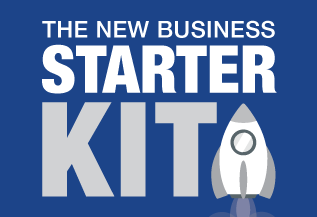Accounting for Psychologists Newsletter #7
Welcome to the Accountant for Psychologists Newsletter January 2023.
I hope you’ve been enjoying the holiday season. I certainly have! As you know, I’m originally from Malaysia and this summer we were finally able to catch up with my extended family for the first time in more than 5 years. It’s been great to spend time with my parents and siblings and to meet up with my nephews and nieces. There are even two beautiful baby nieces that I met for the first time. Having said that, it wasn’t without drama. My daughter tested positive for covid on New Year’s Day and, as Malaysia has a mandatory quarantine period, we had to reschedule all our flights. While there were a lot of silver linings to this cloud – my daughter recovered quickly, we got to spend more time with the family, I was able to do some work online and to delegate the rest to my very capable colleagues - it was rather stressful. So, I’d like to remind you about the importance of insurance and contingency plans.
Here’s a link to my article on contingency plans for business:
https://www.sheridans.net.au/blog/accounting-for-psychologists-newsletter-4/
Below you’ll find information on personal insurance like income protection insurance, total and permanent disability insurance and also
on business insurance like Public Indemnity Insurance and Public Liability Insurance.
https://www.sheridans.net.au/blog/accounting-for-psychologists-newsletter-3/
Did you set any financial goals for the New Year? January is often a busy time at Sheridans as people take time over the holidays to set goals and take stock of things. People often make the decision to buy a property or to refinance.
If you’re interested in buying a home, or a business property, book a time to talk things over with me or my colleague Sarah. We can help you evaluate your financial situation and then to find the most suitable loan.
If you’re not sure if you’re getting the best deal on your home loan, refinancing, that is changing your loan to a different lender is also an option. Again, Sarah and I would be happy to discuss this with you free of charge.
If you’ve decided that this year is the year to start your own business, don’t hesitate to talk to me. I’ve put together some resources relating to business structure, GST and personal services income especially for psychologists. If you’d find them useful, just give me a call or flick me an email and let me know,. I’d be happy to share them with you.
In this newsletter I’ll discuss claiming tax deductions for your motor vehicle as an individual and as a business.
Important tax dates
| 28 January |
Make December quarter 2022–23 super guarantee contributions to funds by this date. |
| 21 February |
Lodge and pay January 2023 monthly business activity statement (BAS) |
| 28 February |
Quarter 2 (October–December) activity statements – final date for lodgement and payment, including electronic lodgement |
| 21 March |
Lodge and pay February 2023 monthly business activity statement (BAS) |
Claiming tax deductions for your motor vehicle
Individuals
The Golden Rules of claiming a tax deduction for work‑related expenses, including motor vehicles, are:
- You must have spent the money yourself and not be reimbursed
- It must directly relate to earning your income
- You must have a record to prove it.
- you can only claim the work‑related portion of an expense.
You can’t claim the cost of normal trips between home and work, even if you live a long way from your usual workplace or have to work outside normal business hours.
You can claim the cost of using a car that you own when you drive:
- Directly between separate jobs on the same day – for example, driving from your main job as a psychologist to your second job as a university lecturer
- To and from an alternate workplace for the same employer on the same day – for example, travelling to a client or a hospital or a medical centre and then back to your workplace.
- From your home to an alternative workplace and then to your normal workplace – for example, from home to a school to speak to a client’s teachers and then to your office as an educational psychologist.
-
From your work to attend a work-related meeting or conference that is not at your normal workplace
- For example, to attend a CPD event at a conference centre.
- If your home is your base of employment, and you start your work at home and travel to a workplace to continue the work.
If you claim car expenses, you can use the logbook method or the cents per kilometre method to
calculate your deduction. With both methods you will need to keep records for 5 years.
The Logbook Method
The logbook method requires that you keep a logbook of your car use for 12 continuous weeks. For each journey (both work and personal) the logbook must show:
- The date of travel
- The reason for travel
- Odometer readings at the start and end of the trip
- Kilometres travelled
You can use this to work out the percentage of time you use the car for work.
The logbook information can be used for five years, unless you get a new car or change jobs. There are minor recordings that need to be made at the start and end of the year, but you won’t need to repeat the 12-week process.
You can use a paper logbook or the electronic logbook in the myDeductions tool in the ATO app to record the information.
You must also keep written evidence of all your car expenses:
- All fuel, oil, (you can keep receipts or estimate it based on the mileage records. This is the only one you can estimate)
- Registration, maintenance and insurance expenses
- The cost of tyres and batteries
- Lease payments
- Depreciation (the maximum deduction for depreciation on a car is $60733)
- Interest on car loan
- Copies of the invoice and finance documents of any new vehicle
- Tolls and car parking expenses related to work
The Cents per Kilometre Method
The cents per kilometre method pays you 78 cents per kilometre that you drive for work (in 2022-3). This rate includes everything -that is, maintenance, repair, fuel, rego and insurance etc., so you cannot claim it again.
If you use the cents per kilometre method, you need to be able to show how you calculated your work-related kilometres and prove they were for work. You can claim up to 5,000 km using this method. To record your driving for work you can use a logbook or myDeductions on the ATO app.
Business
All vehicle expense records must be kept for 5 years. Apart from this, there are different requirements depending on what type of business you have.
Sole Trader & Partnership
Sole Trader & Partnership businesses can use the Cents per Kilometre, or the Logbook Method described above in the section for individuals. Unless you use a motorcycle, ute or minivan, in which case you use the actual cost method. See below.
Company & Trust
A Company & Trust will use the actual cost method. They cannot use logbook or cents per km. The Company & Trust will need to keep receipts for all business-related motor vehicle expenses and will then use the actual costs to make a claim.
If the vehicle is also used for private purposes, records must be kept showing the portion of time it’s used for each purpose.
Depreciation (aka decline in value) on the vehicle can be claimed if using the actual costs method.
If the company is providing the car for an employee or shareholder there can be further tax implications such as fringe benefits tax.
As always, if you have any tax or business related questions, the Sheridan's team and I are here to help.
Wishing you all the best for 2023 and for the Lunar New Year of the Rabbit.
Live long and prosper!
Fairuz and the Sheridans Team














